The inability to lose weight despite reducing your calories and exercising excessively, an increase in your appetite even after just having had a large meal, hair loss, and cold body temperature.
What do all of these findings have in common?
They are frequently seen in the condition of leptin resistance.
And in this article, I’m going to walk you through how to diagnose this condition using simple blood tests and your symptoms.
I’m also going to discuss how your leptin level impacts your ability to lose weight and what type of therapies you may need.
Diagnosing Leptin Resistance
I’m going to spend some time discussing the importance of leptin below, but to get started with I want to talk about exactly how you diagnose this condition.
And, it turns out, diagnosing leptin resistance is actually quite easy.
(*Note: it’s important to realize that there isn’t an agreed-upon way to diagnose leptin resistance (1), but it is agreed that if you CAN’T lose weight AND you have high leptin then you have leptin resistance. I have added my own values which I find to be accurate based on treating hundreds of patients below.)
The best way to go about doing this is by ordering what is known as a serum leptin test.
This general lab test looks at the total leptin hormone concentration in your blood.
If your fasted serum leptin, when tested, is greater than 10 ng/ml AND you have the symptoms of leptin resistance (listed below) then you have the condition of leptin resistance.
Below you can see an example of a patient with leptin resistance and a fasted leptin level of 52.1 ng/ml.
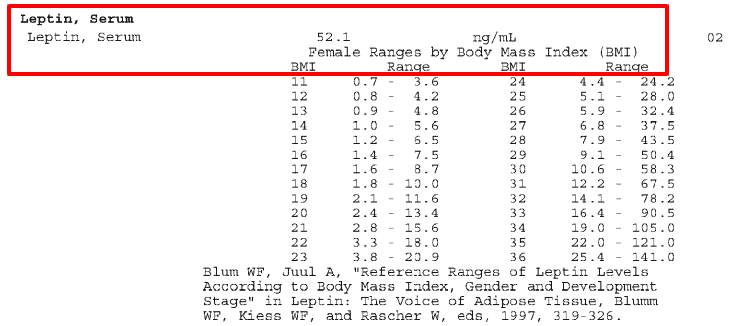
Prior to testing, this patient was experiencing the inability to lose weight, a cold body temperature, hair loss, an increased appetite, and other symptoms of hypothyroidism.
It’s important to realize, though, that your leptin level will fluctuate on an hour-to-hour and day-to-day basis!
To get the MOST value from testing leptin you MUST be in a fasted state.
I recommend that you test your leptin on a 12-hour fast.
So if you are getting your labs tested at 7 am in the morning then you would want to stop eating at 7 pm the night before.
You can drink water during this time but you should avoid sweeteners, coffee, creams, and any liquids that contain calories or artificial sweeteners.
Avoiding these is critical because they may send signals to your brain that can alter your serum leptin level and make your lab test less reliable.
If you just wanted to know how to diagnose leptin resistance then that’s all you need to know.
But, I recommend that you read the rest of this article because there’s actually a lot more to understand.
What is Leptin Resistance
So what is leptin resistance, anyway?
And is leptin a “bad” hormone?
The answer is no, leptin is not a bad hormone.
In fact, leptin plays an absolutely critical role in regulating your body weight (2) and your metabolism (3).
It impacts your metabolism by interacting directly with thyroid hormone (4).
These two systems play together to help your brain set your appetite, help your brain regulate and set your metabolism, and help your brain communicate with your fat cells.
Hopefully, this doesn’t come as a surprise to you, but there MUST be a way for the fat cells in your belly to communicate with your brain.
And the way that they do this is through leptin.
Your fat cells, as they grow larger, actually secrete several hormones.
One of the hormones that they pump out is leptin and the entire purpose of leptin is to circulate in your body and tell your brain that your fat cells are “full”.
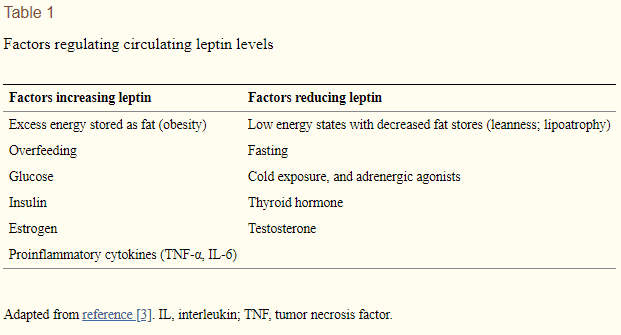
Your brain is then supposed to respond by INCREASING how many calories you burn each day and by REDUCING your appetite.
The exact thing that you want to happen if you have extra fat on your body, right?
By increasing your metabolism and by reducing your appetite, your brain is attempting to normalize your body weight.
That’s how it is supposed to work, anyway.
Leptin resistance is defined as a state which interferes with this normal communication between your fat cells and your brain (5) and one which causes persistent weight GAIN and the inability to lose weight.
But, how do we get from the system that is working perfectly to the system that doesn’t work at all, known as leptin resistance?
Imagine a scenario in which your fat cells are constantly growing due to inflammation, poor diet, lack of exercise, stress, lack of sleep, hypothyroidism, and so on (sound familiar?).
This scenario shouldn’t be too unfamiliar to many of you reading this.
As your fat cells grow, they continue to produce higher and higher levels of the hormone leptin.
At some point, this increase in leptin causes your brain to become “numb” or “resistant” to the message.
So, even though leptin levels are high and you have an abundance of fat cells (adipose tissue) in your body, your brain starts to ignore the message.

This continual ignoring results in your brain becoming resistant to the hormone leptin.
At some point, your brain starts to ignore the leptin altogether and begins to think you are in a state of leptin deficiency (or low leptin levels).
And, the typical response to leptin deficiency is to INCREASE your appetite and LOWER your metabolism in an attempt to help your fat cells grow.
This dysregulation and the inability of your fat cells to communicate with your brain through the hormone leptin is what causes leptin resistance.
But, truth be told, this condition doesn’t just happen overnight. It takes weeks to months of being obese before you develop this particular problem.
Signs and Symptoms you are Leptin Resistant
How do you know if you have leptin resistance?
We talked about how to diagnose this condition, but we only touched on your lab tests.
You can also identify or begin to suspect the presence of leptin resistance by looking at and evaluating your symptoms.
Your symptoms are particularly important because they may be the first clue that you are starting to experience leptin resistance in your body.
Because they are so important, I often recommend that you monitor and track your symptoms as you undergo therapies to see if whatever you are doing is working to treat your leptin resistance.
Symptoms of leptin resistance include:
- The inability to lose weight even with calorie restriction and extreme exercise (if you are eating fewer than 1,000 calories per day and NOT losing weight then that is an indicator you may have leptin resistance)
- Extreme cravings for food even if you’ve recently eaten (6)
- A slower than normal or damaged metabolism (7) (you are burning fewer calories than normal)
- Persistent weight gain despite attempts at weight loss
- Lower than normal body temperature
- Lower than normal resting heart rate
- Presence of other hormone imbalances (including hypothyroidism, estrogen dominance, low progesterone, low testosterone, or high cortisol)
Is a High Leptin Good?
This is something that causes confusion among many people, so let’s clear the air a bit.
Leptin is not a bad hormone.
The state of leptin deficiency is absolutely a problem, but this problem does not mean that leptin is bad.
The problem with leptin resistance is the fact that your brain and other tissues become resistant to leptin.
But leptin still plays a very important role in regulating your weight.
So, instead of focusing on leptin, you want to focus on how sensitive your brain/body is to the hormone leptin.
When treating leptin resistance, you want to monitor your leptin level, but what’s most important is whether or not you are losing weight.
If you are losing weight AND your leptin level is high then you are in a good position (probably).
This indicates that your body is becoming sensitive to the hormone leptin and having an elevated leptin level is good for your body.
If you are NOT losing weight AND your leptin level is elevated then you are probably in a state of leptin resistance.
This is a pathological condition that WILL result in the symptoms we mentioned above.
I typically find that patients with very high serum leptin levels (those greater than 30 or 40) will often need to see their leptin levels dip slightly in order to sensitize their bodies to leptin.

What this means is that it may be necessary for your leptin level to DROP in order to help you lose weight.
As serum leptin level drops, less leptin is available to cause problems for brain/tissue receptors which may increase leptin sensitivity.
But you really only want your leptin level to drop slightly and only enough so that you start losing weight.
Once you start losing weight you actually want to maintain a high level of leptin to HELP your body burn fat, increase your metabolism, and normalize your appetite.
Make sense?
Severity and Treatment of Leptin Resistance
Testing your leptin level is very important because the absolute level of leptin in your body in the fasted state can help you determine just how resistant you are.
Imagine leptin resistance on a spectrum or a continuum.
On one side you have a very minor, relatively easy-to-treat leptin resistance which only causes a minor difficulty in weight loss and one which responds to simple lifestyle changes such as diet, supplements, and exercise (8).
People who have minor leptin resistance may only have a fasted serum leptin level in the 14-20 ng/ml range.
On the other side, you have a very difficult-to-treat version of leptin resistance which only responds to therapies that include medications, hormones, supplements, and dietary changes.
People with moderate to high leptin resistance often have a fasted leptin level greater than 40 ng/ml (sometimes even much higher than this).
Generally, the higher your leptin level is the more difficult it will be for you to both treat the condition and for you to lose weight.
It also helps give you information about what kind of therapies you are likely to need to treat your condition.
One of the biggest problems with leptin resistance is that it is not always appreciated in the conventional medical community.
Doctors such as your endocrinologist or primary care physician are probably not aware of leptin resistance or how to treat it.
As you become more leptin resistant, the therapies that you need start to require medications (9) and hormones which can be difficult to get unless you have a doctor working with you.
Treatments that fit into this category include GLP-1 agonists, T3 thyroid hormone, dietary changes such as those found here, and supplements such as those found here.
If you have severe leptin resistance you will most likely also have to look at other hormone imbalances such as low T3 syndrome and hypothyroidism.
Conclusion
Leptin resistance is actually an easy condition to diagnose and it can be diagnosed with simple blood tests which your doctor can order.
This test should almost always be covered by insurance and any doctor can order it.
To get actionable results, make sure that you get tested in the fasted state.
When you get tested, I also recommend that you check other hormones such as your thyroid system, your cortisol, and your sex hormones.
The combination of your serum leptin level and your symptoms can help you determine just how resistant you are.
The more resistant you find yourself, the more aggressive therapies you may need.
Now I want to hear from you:
Do you know or suspect that you have leptin resistance?
What is your fasted leptin level?
What therapies have you tried to help normalize it?
What has worked for you? What hasn’t?
Leave your questions or comments below!
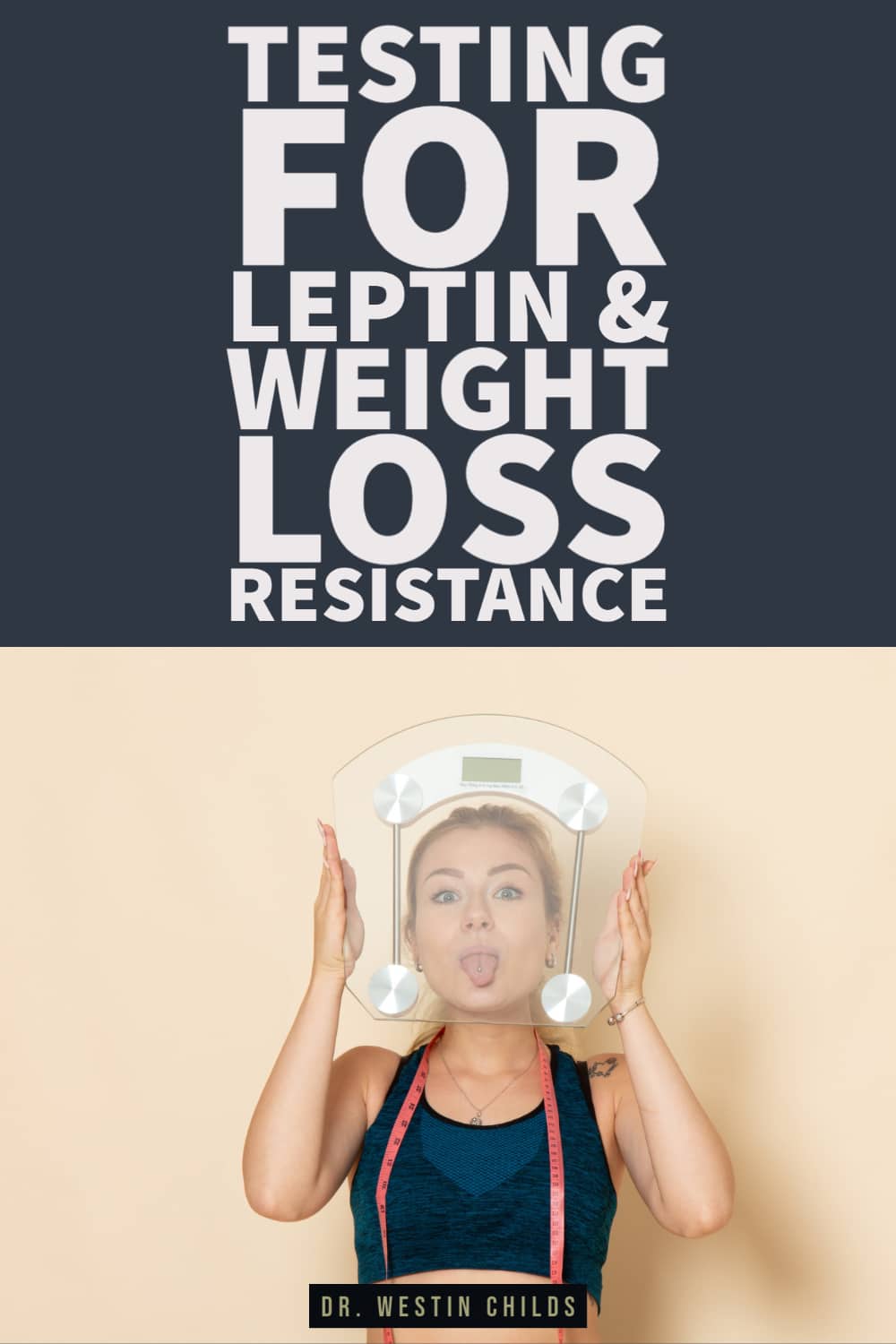
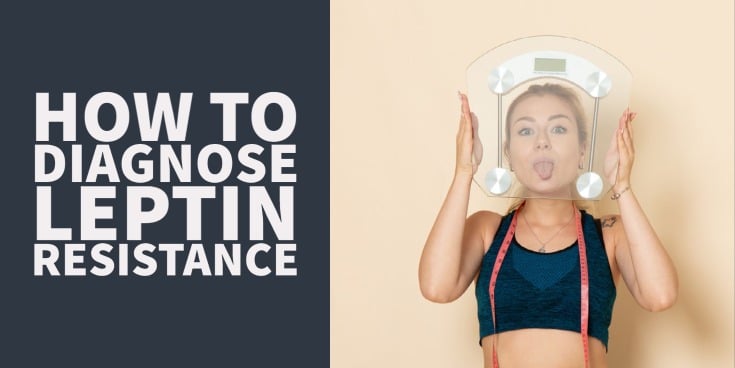


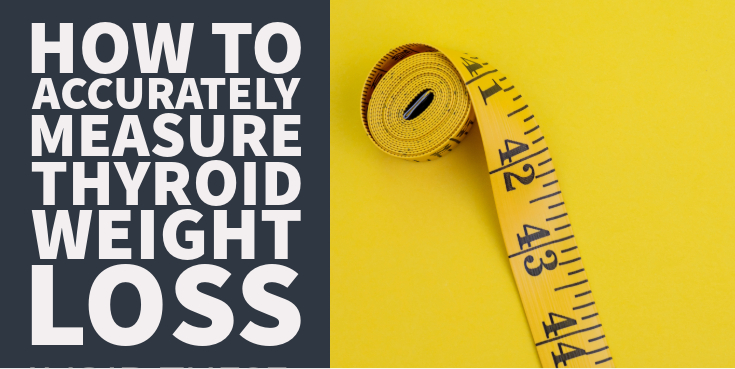
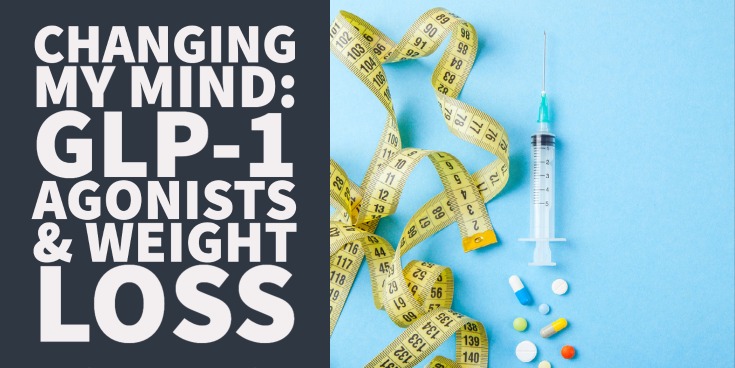

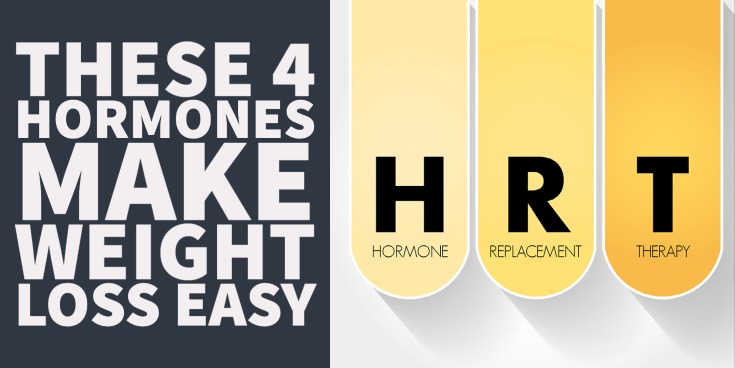

I have the majority of the symptoms of leptin resistance that you mention above – with the exception of the hormones. I have been on nature-throid, bhrt for progesterone, testosterone and bi-est. The latest lab results (last month) are:
serum testosterone: 45ng/dl range: 3-41
free T4: 1.22 ng/dl range: .82 – 1.77
free T3: 4.3 pg/mL range: 2.0 – 4.4
progesterone: .2 ng/mL
estradiaol: 53.2 pg/mL
A1c: 5.4%
I have asked to have my reverse T3 tested as well as fasting insulin, leptin and cortisol, but always get denied. His theory is that fasting insulin means nothing in terms of weight loss.
I am always tired and have no energy. My fasting glucose is consistently in the high 90’s (always between 95-99).
He wants to get my testosterone up around the 200 range as he said that will help with weight loss. I am 59 and post-menopausal. I am afraid of the side effects of such high testosterone.
At my last appointment, he said it is up to me to figure out why I cannot lose weight as my hormones are all ok. I feel as though I am being treated as a number on a piece of paper.
I am now considering ordering the lab tests from one of the on-line sites and treat myself. There aren’t any other integrative/functional doctors around where I live.
Any insight would be appreciated.
Hi Mary,
It sounds like you probably need to make sure that you test your serum leptin to see if it is a problem and perhaps seek a second opinion from a physician more willing to work with you. You can find resources on how to do that here: https://www.restartmed.com/thyroid-doctor/
Hi Dr. Childs- I am long term hypothyroid (over 20 years) and have just recently gotten a leptin test after watching some videos about leptin resistance. It has always been very difficult to lose weight and move from my 200 pound setpoint. In 2015, my endocrinologist gave me Saxenda (GLP-1 agonist) and I lost 30 pounds, but it was because I didn’t eat. The medicine made me sick to my stomach. Once I stopped taking it, the weight came back again even though I eat plant based and fairly healthfully. Anyway, my fasted (12 hour) leptin result was 24.9 and I am 41 with a BMI of 33. My PCP told me the result is normal, but based on what I’ve learned from you, that is elevated. Right now, I am trying a low carb vegan diet with higher fat and moderate carb to see if that will work. Any thoughts? I know you aren’t treating but your blog asked for feedback so here it is. I’m interested to see what you think. Also- congrats on the BYU graduation! I’m a graduate from BYU-Idaho!!
Hi Shannan,
BYU is the best 🙂
And yes, in order for Saxenda to work it must be used correctly. The way that I recommend dosing for Saxenda is much different than the way that conventional doctors recommend using it. In many cases, at least by the time people get to me, traditional diets and lifestyle changes are not sufficient to correct leptin resistance. So it could be that your diet is great for your body, but not necessarily sufficient by itself to correct your leptin resistance.
Dr. Childs,
Please tell me how you dose Saxenda!
The dosing schedule shows to titrate up 0.6mg/week.
Is this what you recommend? I’ve also heard people stay at 0.6mg until they start having hunger pangs again, then they go up to 1.2, and so on.
I’d like to know your recommendations.
Thank you.
My thyroid gland has been killed with radioactive treatment iodine or I should say nuclear medicine. At this point what do I need to do? How to take care of myself since my thyroid gland isn’t there. I do know that I am gaining weight, suffering from hair loss, and cold body temperature. Help!
Hi there,
I am hypothyroid and have adrenal fatigue for several years now after a copper iud I believe. I am Hoping to get on T3 only very soon as I tried armour last year and was severely underdosed and my FT3 was converting to and raising the RT3 and I became more hypo and gained more weight and got colder and lower Heart rate in effect. I begged that doctor to test my leptin and it came
Back super low—at 3.5. I have all the symptoms
Of leptin resistance and even teach fitness classes and exercise a lot and still experienced a rapid weight gain about 20 mos ago and its continuing today with the complete inability to lose weight even on whole 30 and AIP! What does a low leptin level mean? She had no clue and I can’t find any info on the web about it?
Hi Katie,
A low leptin level will give you the same condition and symptoms as leptin resistance. It can be caused by hypothalamic/pituitary issues.
Leptin resistance is a lack of sensitivity in the body to leptin so it’s as if your brain believes that leptin is low. So you can see that low leptin levels create the same type of scenario only the leptin level is low instead of high as in leptin resistance.
I am low-leptin also (3.5), also with the same symptoms as leptin-resistance. So this response makes sense.
Is the treatment the same?
Dr. Childs,
Can you comment on this? I also have low leptin after years of bulimia. I’ve tried to address metabolic damage in myriad ways but my weight continues to increase. I’d also like to know how you’d consider (hypothetically, I understand I’m not your patient nor would take suggestions as medical advice) treating this (hypothalamic, pituitary dysfunction, low leptin). Would you treat it the same as leptin resistance?
Thanks so much in advance as this is really taking a toll.
Josh
Hi Josh,
I typically do treat those with low leptin the same as those with leptin resistance. The results are variable, though.
Seeking info re leptin and lipodystrophy: findings, labs and treatment. Any assistance greatly appreciated.
When I first tested my Leptin in September 2018, it was 67. Terrifying! I followed the “Five Rules” laid out in the book “Mastering Leptin” and I just tested again in April 2019 and my Leptin was 34. Huge improvement. I have lost 20 lbs from Sept to April.
Here are the guidelines I’ve been following:
1. Never eat after dinner. Leave at least 3 hrs between dinner and bed.
2. Eat 3 meals a day…. NO SNACKING! <– hardest rule for me!
3. Don't eat large meals. Eat slowly and stop eating slightly before full.
4. Eat a high protein breakfast.
5. Eat low carb.
However, its been slow going for me losing weight, so I'm on Saxenda now… just starting out. I really hope it helps. But until I could convince my doctor to prescribe it, and until I could afford it, the five rules helped a lot.
My leptin level is 77. What do I do first? What does that mean?
Hi Dr. Childs,
I just had my fasting lab work done and the results are:
Serum Leptin 40.1
Reverse T3 29.1 (Reference range 9.2-24.1 ng/dL)
Free T3 3.1 (Reference range 2.0-4.4 pg/mL)
Free T4 1.27 (Reference range .82-1.77 ng/dL)
Insulin 8.2 (Reference range 2.6-24.9 uIU/mL)
Serum Testosterone 138 (Reference range 3-41 ng/dL)
Testosterone %F&W 3.4 (Reference range 3-18%)
Testosterone F&W 4.7 (Reference range 0.0 – 9.5 ng/dL)
Progesterone .3
Estradiol 9.6
Currently, I am taking 400mg progesterone per night, 2mg of bi-est 60:40 per day, 1 97.5mg Nature-throid per day and 1 click (1/4 gram) of testosterone HRT 3% cream per day.
I am 58 years old and post-menopausal for 9 years. I am concerned about the high leptin and rT3 levels. I am unable to lose any weight no matter what I do. With the exception of the increased appetite I have all of the other symptoms that are listed in the article. I do have cravings – especially for sweets/carbs.
My doctor has left it up to me to figure this out as he will not prescribe any medication (outside of bio-identical hormones and Naturethroid). I had to pay for the rT3 and Leptin tests myself as he informed me that they were not needed.
So, I am wondering if I should start taking higher doses of Berberine, ALA, etc? Or should I start with Oralvisc?
I’m 40 pounds overweight (all within the last 3 years) and am at a loss where I should start (and I know now that I need to find another doctor). I know that you cannot provide medical information online, but if you could provide me with any information/starting point, I would appreciate it. thank you!
Dr Childs,
I went to a lab to have the serum leptin test and they ask me if it came under another name. They could not find it so I was unable to have the draw. Can you help?
-Beth
Hi Beth,
The lab test is called serum leptin so it should come up with that query. If they are a small lab then they might not run it.
Hi Dr. Childs,
What are the reference ranges for a normal and healthy Leptin Serum? Is it bad if someone has a very low Leptin Serum? Mine was 1.1 at 21.4% bodyfat. I just had it tested again and it was 6.1 and I’m probably 22% body fat now. I understand how a high Leptin level can be a negative thing if a person is resistant but I’m so confused about what it means if you have a very low Leptin level. It almost sounds like your metabolism would be super slow and the lack of Leptin would trigger your brain to tell you you’re starving! Is it possible that if you’re genetically born to have a low Leptin Serum level (ex: 1.1) than the body would think a 6.1 is now high and therefore it’d signal the brain to think you’re full and speed up the metabolism and use more calorie rather than do the opposite?
Hi Michelle,
Having a low (or zero) leptin creates the same environment as a high leptin with leptin resistance. There are some conditions which result in very low leptin but it is less common than leptin resistance (high leptin). So, yes, you would see the same symptoms with a very low leptin level as you would with a high leptin level.
I had genetic testing done and my LEP-r was broken and lab levels are very low… so what is the treatment for low leptin due to genetics and how do you reverse?
Hello,
Did you ever find out the treatment for low leptin? I have the same issue, it seems Dr Westin tells people that it will have the same effects as high leptin but does not offer any treatment advice. Any thoughts?
I am in this same boat. Low leptin levels but same symptoms. Would love any advice!
I’d really love to know as well. There’s very little out there on tx for low leptin.
Reading this article I feel a tiny bit of hope, I have all of the symptoms above. I’ve been naturally quite thin my whole life, but one day, 3 years ago it was like a switch flipped – my hair rapidly thinned out, and I gained close to 60lbs in a year despite doing very hard manual labour 3-4 days a week.
I always feel like there is no girl in my body, regardless of whether or not I have eaten. It just feels like the nutrition doesn’t “reach” my cells. I never used to feel like this, I used to have energy and lived to eat – now I’m scared of eating despite being hungry or “low” all the time.
NP doc tested my thyroid and put ne in lie does dessicated with no change in symptoms.
Small breakthrough was recent diagnosis of h pylori, which went undiagnosed for approx 3 years of repeat doctors appointments/ worsening of symptoms.
Do long term gut problems impact/influence leptin levels and or resistance?
I’m so sick of being told “calories in, calories out” by old white men when there is clearly something wrong.
Hi M,
Well, I’m a young(ish) white man telling you that there’s definitely something going on more than just calories! In regards to your other question, I don’t typically see a direct connection between gut health and leptin/insulin levels outside of its regular influence on inflammation which is obviously at the root of many conditions including hormone resistance syndromes. You typically don’t see massive inflammation sufficient to cause those disorders on their own but it’s plausible that it may make them worse if they already existed.
Hi Dr Childs, what do you think of replacing calories with coconut oil to reduce weight/leptin resistance?
I am over 30% body fat, BMI 27, gained a large amount of weight very quickly and tried on and off to eat normally and cut back when it went up to no avail. I have lost some but my leptin is 9. What is the treatment for this starvation response? I have 45 pounds to lose to get back to my pre-gain weight and it doesn’t seem impossible. Also have mid range free t3, borderline high rt3, thyroid going autoimmune with tpo 8, high estrogen (likely from high body fat), low progesterone, but normal insulin at 13.6 and normal blood sugar at 88. All fasted for 12 hours before testing. Exercise has zero impact on weight or ability to gain muscle. Any advice please? My body thinks it is starving at an obese body fat and has eaten its own muscle mass when I cut back on calories.
My fasting leptin levels are 100+ which I think is extremely high (or?). My BMI is 38. I suffer from cold temp, hair loss and extreme hunger and cravings, even though all my lab results are normal, except the leptin. I can lose weight, however, after dropping about 10 kg’s, my body and brain starts fighting me with unbearable cravings and soon after I gain it all back. This has happened to me 3x within the last 2 years. I also struggle with lethargy, fatigue and doesn’t have the energy to exercise. I also very easily have tetany type of muscle spasms. Now, I quit sugar and flour completely and started working on losing weight again. Any advice on how I can keep it going beyond the critical 10 kg’s would be greatly appreciated.
Hi,
Thanks for the article. After years of trying everything to lose weight (intermittent fasting, cardio and weight exercise classes, acupuncture, naturopath) I asked for a leptin test. It was 80! I am also insulin resistant, on HRT and monitoring my thyroid.
I am now on Saxenda and slowly losing pounds but seem to have plateaued.
Should I have another leptin test done? Can you think of anything else I should try? I would also like to know what set this all off…..as I was a ‘normal’ weight until my mid 40’s.
Hi Dr. Child’s, I had my lepton levels checked, and it is 43, my bmi is 30. Every time I try to lose weight, I actually gained weight. My doctor has issued in order for Waygovy. After reading the reviews, I see that it works because you have no appetite. What will happen after I come off of that or is that gonna be a lifetime thing? I’ve read several others have gained all of their weight back plus some.
Could you please let us know what happens after people come off of the leptin reducing drugs.
At this time I can’t get a prescription of the Waygovi, because my insurance does not cover it and pharmacies do not have it. Is there any other medicines without the strong side effects that you work with to help lower or balance leptin levels?
I do not need personal medical advice as I know that you were unable to give that over the Internet, but just some roundabout questions of your experiences in weight loss.
Thanks for the article!
I asked my doc to run a serum leptin test, she ran a quantitative leptin…are the result ranges the same? Thanks in advance.
Hi Cathy,
I’m not familiar with quantitative leptin, which lab ran the test?